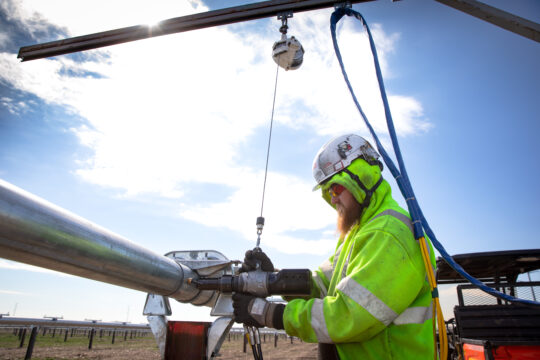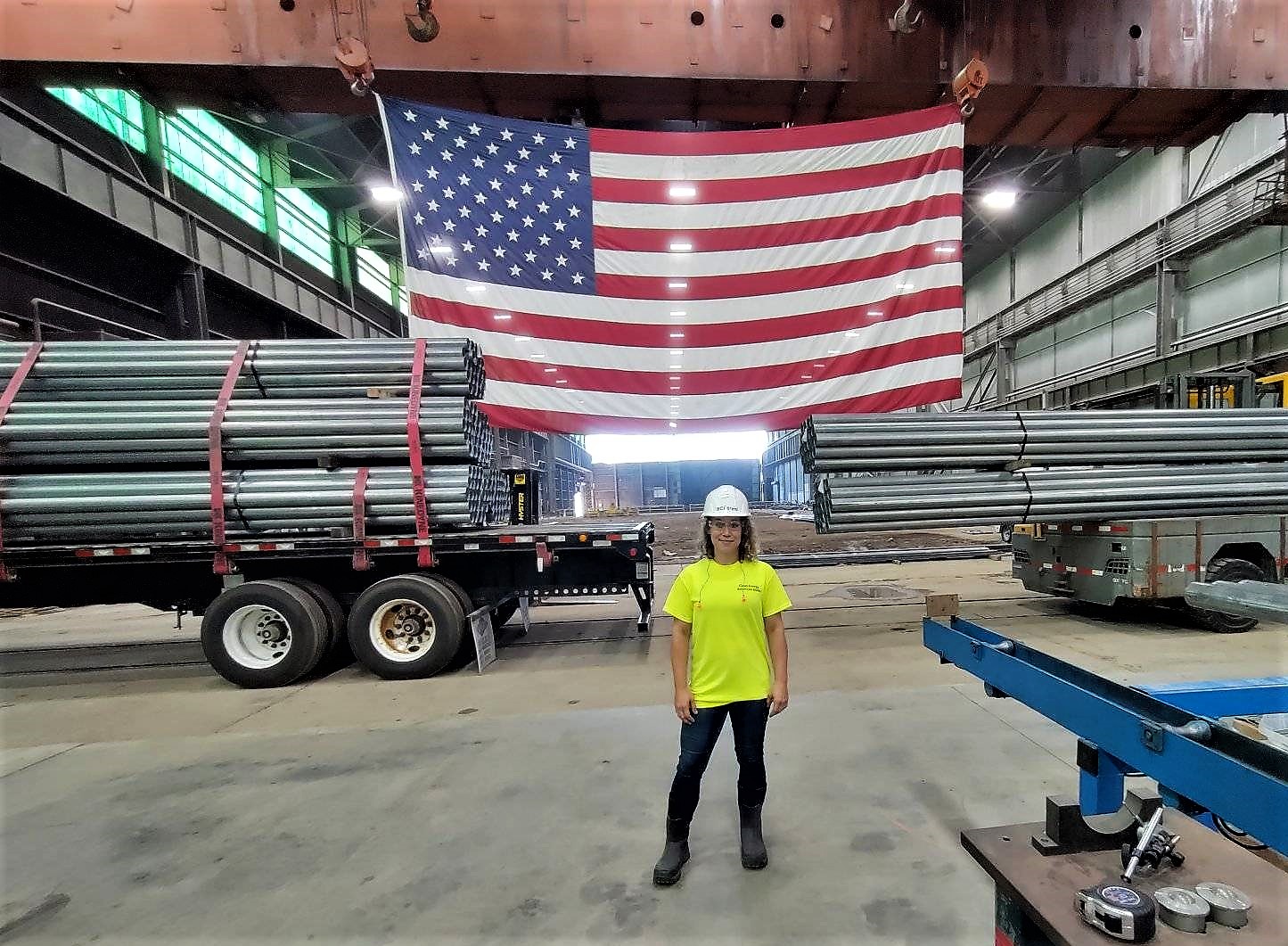Domestic Manufacturing: Potential Asset for Community Acceptance
Guest post by Dan Shugar
Founder and CEO, Nextracker
In 2021 the COVID-19 pandemic threw global supply chains into disarray, making clear the need to build more resilient supply chains.
America has the innovation, engineering expertise, and natural resources to revive our supply chain. But our industry needs to be able to perform no matter what the world throws at us, whether it’s some unseen supply chain crisis, a meltdown in global logistics, or commodity price shocks.
Fortunately, since the IRA’s passage in August of 2022, American Clean Power Association (ACP) has documented over 47 new clean energy manufacturing facilities that created 18,000 jobs. That’s on top of the four new U.S. factories Nextracker opened or expanded with its supply partners in 2021-2022.
The clean energy transition faces another serious challenge: rural communities rejecting job-creating renewable energy projects. Even permitted projects face opposition, with disgruntled neighbors harassing landowners. More than 100 local ordinances have passed in recent years that block or restrict clean energy projects.
We need to engage and think differently about how we connect with our customers and consumers of electricity. If we don’t get our conversation with rural Americans right, we risk billions of development dollars and our best chance at a sustainable long-term national energy supply.
What if the work we’ve already done on reshoring could help? What if bringing factory work and energy security back to America is something we could meaningfully share with rural Americans as they consider whether to host renewable energy production in their communities?
Polling is instructive: In December 2021, Morning Consult found 90% of voters think it’s important that the U.S. “produce its own renewable energy equipment here in America.” As Americans, we want things made in America because we identify with the experience of people like Michelle Barszcz, a Lead Line Operator at our partner, BCI Steel’s, new tube mill near Pittsburgh. Michelle is supporting her three children in the very same factory her grandfather worked at when she was a kid. That factory was shuttered, but it now produces critical utility-scale solar tracker components for clean energy projects in the heart of our country. Michelle is someone many Americans can relate to, and she has a perspective to share with them. You can hear her story in this video here.
We firmly believe that renewables’ ability to cut our foreign energy dependence is one of the most compelling points we can make to rural Americans. Through military service, many have seen firsthand the risk of relying on other countries for our energy. They also know that foreign dictators can’t stop the wind from blowing in Wyoming or the sun from shining in Virginia.
We agree with ACP that new projects, especially domestic manufacturing facilities, are a winning argument because they help Americans connect renewable energy with new jobs and local economic growth. Investments such as the newly dedicated tube mill in Memphis with our partners MSS Steel Tubes will create 130 good-paying manufacturing jobs. With this new factory we’re both boosting our speed and reliability in supplying customers, and we’re investing in American communities. If we communicate what we’re doing, we stand a good chance of increasing the popularity of clean energy among neighboring residents.
Because of these efforts, the 800 MW Double Black Diamond project in central Illinois will be equipped with American-made solar panels on Pittsburgh-made steel; and along with our partner Swift Current Energy, we’re letting everyone know it. As an industry, we’ve underinvested in conveying the benefits of our projects to host communities. We can’t afford to do that anymore.
We’ve seen incredible progress and tremendous growth the past 10 years. Our technology works. It’s cost-effective. And it provides energy security and high-quality jobs. We’ve graduated from megawatts to gigawatts, and now we’re on a trajectory for decisions that will have profound consequences for America and the world economy.

McCarthy Building Companies solar installer at the Swift Current Double Black Diamond solar project building the Nextracker “golden row” exemplary row for training and quality purposes. Photo: Swift Current Energy
We need to have focus and discipline not just in how we operate, but also in how we communicate. Our industry has the opportunity to showcase the economic and environmental benefits of solar energy to an expanding American landscape — whether that is farmers, ranchers, rural neighborhoods, or desert communities. The good news is that good business practices are equipping us with strong communications assets. Let’s get out there and use them.
Dan Shugar is the Founder and CEO of Nextracker and a Board Member of American Clean Power Association.

